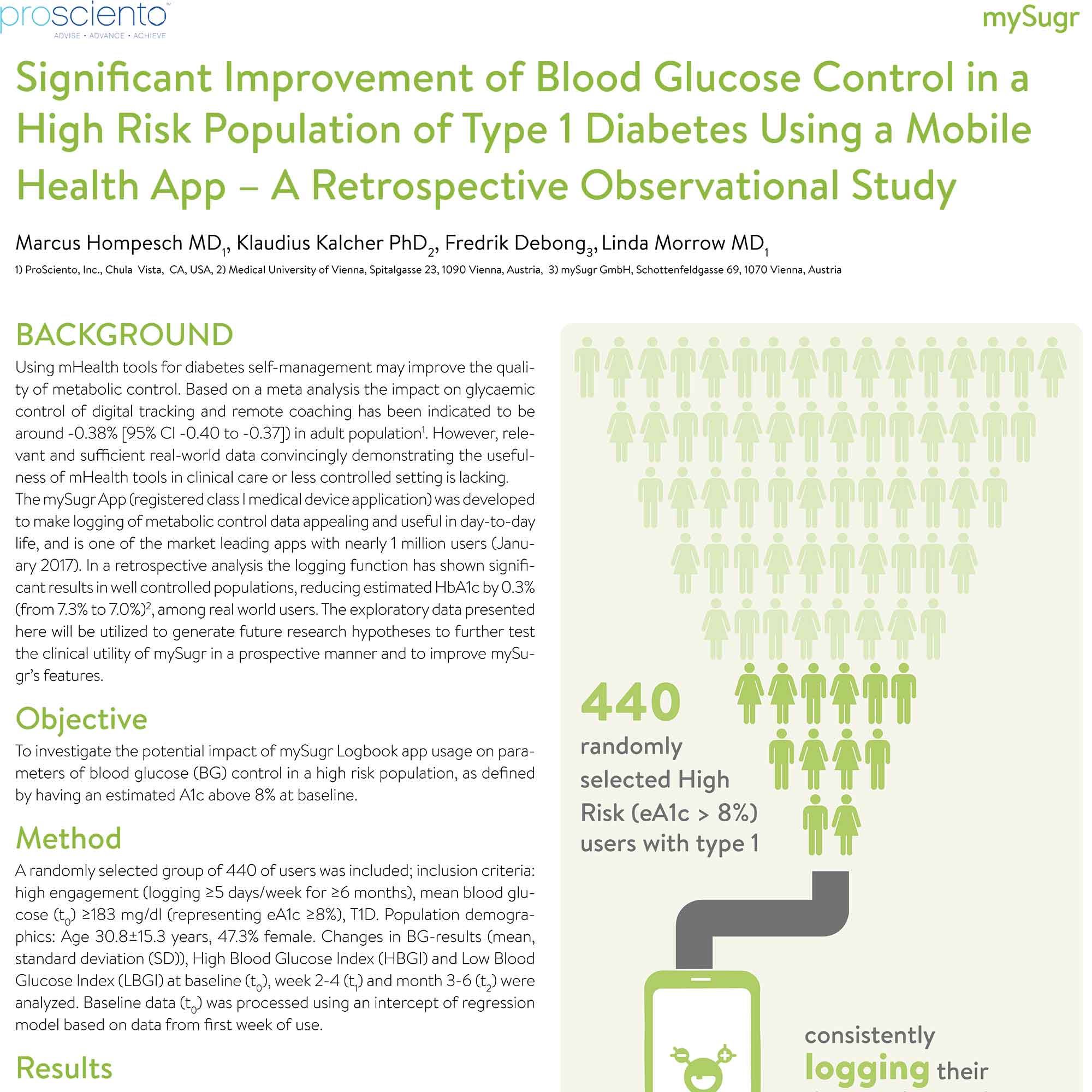About
About this Poster:
Using mHealth tools for diabetes self-management may improve the quality of metabolic control. Based on a meta analysis the impact on glycaemic control of digital tracking and remote coaching has been indicated to be around -0.38% [95% CI -0.40 to -0.37]) in adult population1. However, relevant and sufficient real-world data convincingly demonstrating the usefulness of mHealth tools in clinical care or less controlled setting is lacking. The mySugr App (registered class I medical device application) was developed to make logging of metabolic control data appealing and useful in day-to-day life, and is one of the market leading apps with nearly 1 million users (January 2017). In a retrospective analysis the logging function has shown significant results in well controlled populations, reducing estimated HbA1c by 0.3% (from 7.3% to 7.0%)2, among real world users. The exploratory data presented here will be utilized to generate future research hypotheses to further test the clinical utility of mySugr in a prospective manner and to improve mySugr’s features.


